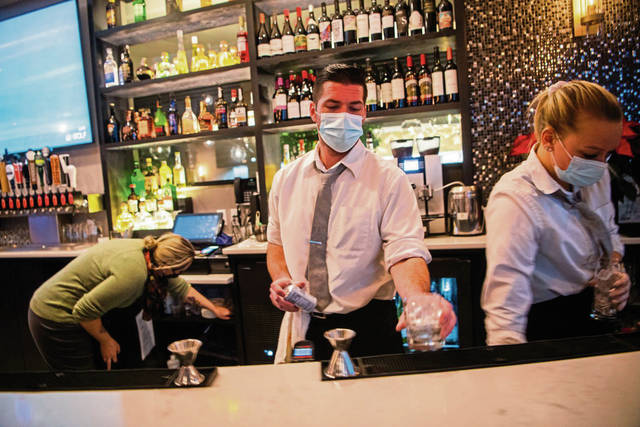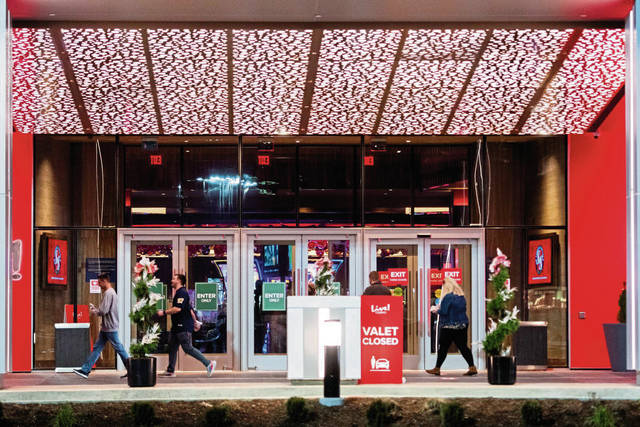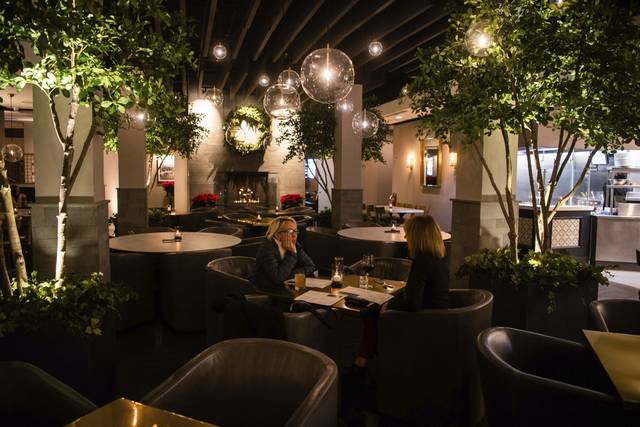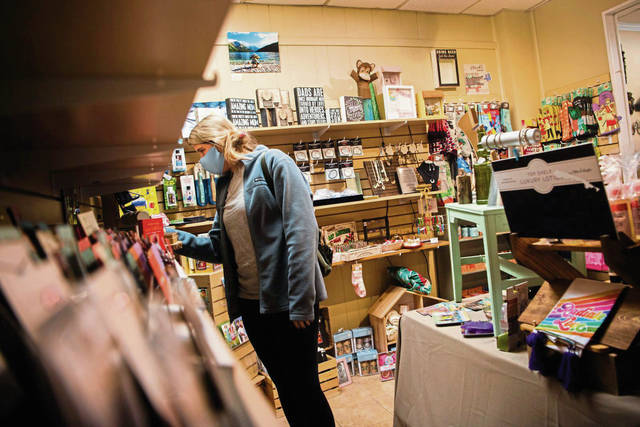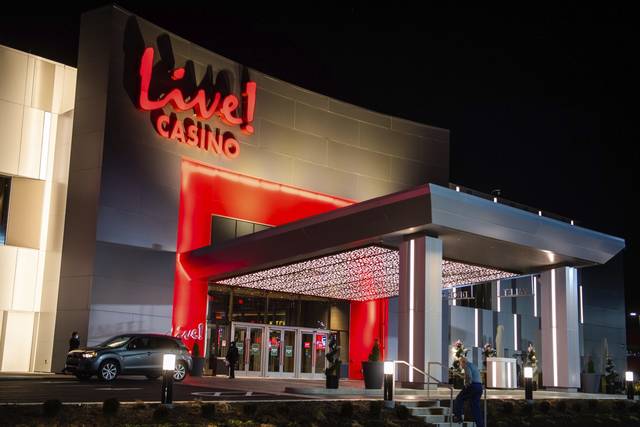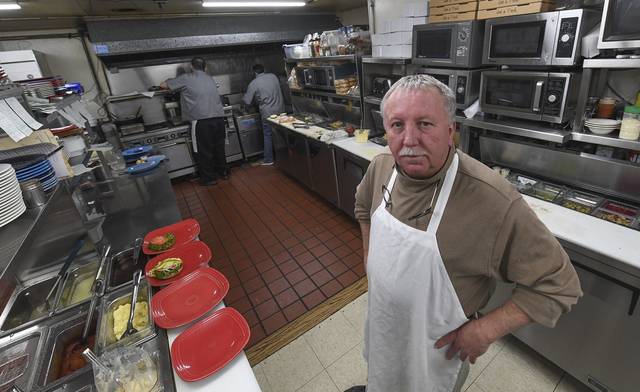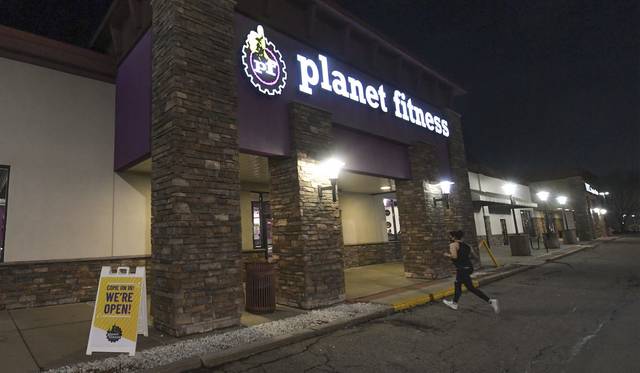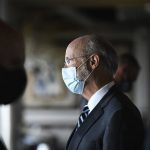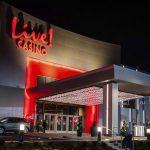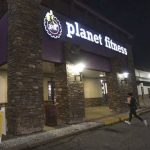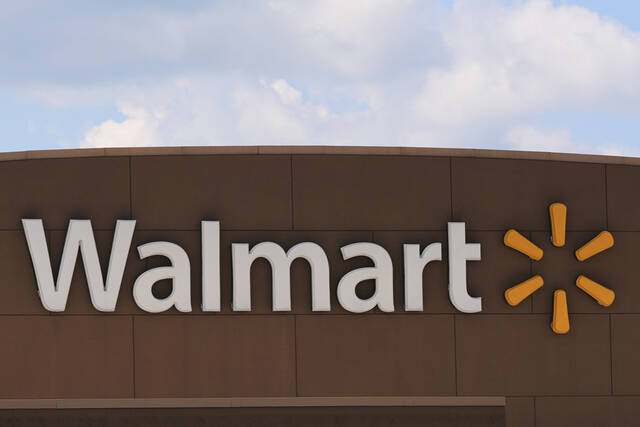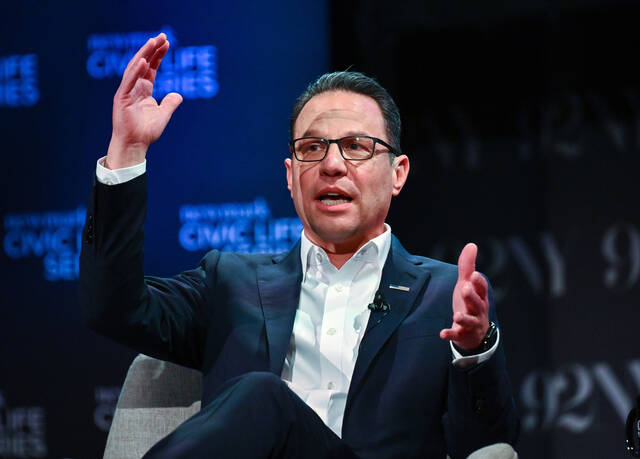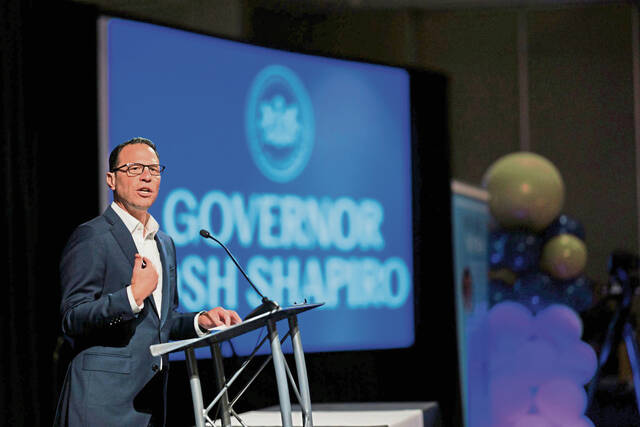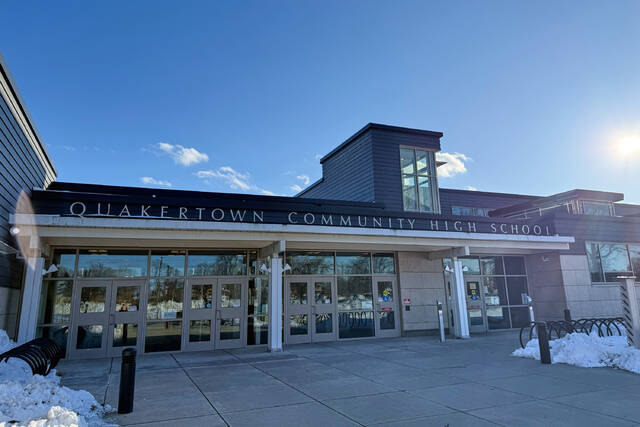After weeks spent imploring Pennsylvanians to stay home as much as possible, limit their in-person interactions and wear a mask, Gov. Tom Wolf and the state secretary of Health issued new orders shutting down indoor dining, gyms, school sports and more as cases and deaths across the commonwealth continue to swell.
The order goes into effect Saturday and will last through 8 a.m. Monday, Jan. 4.
“We all hoped it would not come to this,” Wolf said during a virtual news conference in which he appeared from his home where he is isolating after testing positive for covid-19.
“The situation we’re in right now is dire,” he said. “It’s worse than it was in the spring when we first took action to flatten the curve.”
In addition to suspending all indoor dining, the new restrictions cap indoor gatherings at 10 people, outdoor gatherings at 50 people and all other in-person businesses at 50% of normal capacity.
“I realize that there’s perhaps nothing more important than human interaction, especially within families,” Wolf said. “When you’re not able to see members of your family, that is not a small thing — that’s a big thing. But we need to stay safe. So before you leave home, ask yourself, ‘Do I really need to make this trip?’ ”
Theaters, casinos and other entertainment venues must shut down for the duration of the order. While indoor gyms and fitness centers must close, outdoor classes can continue so long as participants wear masks and practice physical distancing.
Larry Furlong, a firefighter with Denbo-Vesta VFD, and his wife, Carla, were headed to the casino at Westmoreland Mall when Wolf’s announcement came down.
“I don’t know how we’re going to keep the doors open without bingo,” he said of the department.
His wife, too, expressed frustrations with limits on gatherings.
“You can’t have any functions,” she said. “How do they expect the fire departments to run?”
Colleen Yeager, of Ruffs Dale, was also at Westmoreland Mall when Wolf laid out his new restrictions. She blamed a lack of compliance on the part of others.
“I think part of the reason we’re here where we are is because people aren’t cooperating,” she said, wearing her mask. “They can yell at the powers that be all they want to. But the fact of it is we need to take responsibility and they’re not doing that.”
High school sports suspended
All school sports and extracurricular activities are also suspended, as are other youth sports. Professional and collegiate sports can continue but without spectators.
“It’s the right decision,” said James Harris, superintendent of Woodland Hills School District, remarking that he was surprised the move didn’t come sooner. “Our students are going to be safer and healthier.”
At Burrell High School, the restrictions affect boys and girls basketball, swimming and wrestling.
“It’s tough and disappointing, but we saw this coming,” said Burrell School District Athletic Director Drake D’Angelo. “With the amount of positive tests and deaths in our area, it’s an unfortunate thing. We’re been going through this process since July of following the proper protocols, and here at Burrell School District, I think we’ve done a very good job of that.”
Burrell was scheduled to host a tip-off basketball tournament in conjunction with the Kiski Area School District this Friday and Saturday. The school is not yet sure if Friday’s games will go on as planned.
The wrestling team was scheduled to participate in several upcoming tournaments.
At this point, D’Angelo said only section games and meets will be rescheduled unless the season gets pushed back. D’Angelo said a lot of the swim meets had already been postponed.
“It’s unfortunate that our athletes are unable to participate right now, but we’re hopeful that we can again on Jan. 4 and we’ll prepare for that moving forward.”
Governor’s 3 goals
The orders, Wolf said, are aimed at accomplishing three goals.
“First, stop the devastating spread of covid-19 in the commonwealth,” he said. “Second, keep our hospitals and health care workers from becoming overwhelmed. And third, help Pennsylvanians get through the holiday season — and closer to a widely available vaccine — as safely as possible. This is a bridge to a better future in Pennsylvania.”
Each mitigation measure was accompanied by studies and data reinforcing its efficacy.
Wolf said he held off on harsher restrictions until now because the hope had been that previous orders — requiring masks when with anyone outside one’s household and any time social distancing wasn’t possible — would bring down case counts and hospitalizations.
“If we don’t do anything, it’s going to get worse even faster,” Wolf said.
It’s about wearing a mask — all the time
Dr. Chris DeFlitch, vice president of Penn State Health, joined the news conference via Zoom, still in his scrubs after coming off a shift.
“This is a different time,” he said. “This curve and this surge is a completely different animal than we talked about in the spring.”
DeFlitch, who grew up in Mt. Pleasant Township and graduated in 1986 from Mt. Pleasant Area Junior-Senior High School, said safety really is about the small things, particularly wearing a mask — something that can’t be done when dining.
“It’s about wearing a mask,” he said. “And not sometimes wearing a mask, not partially wearing a mask, not covering your nose. It is about being diligent, it is about being persistent about wearing a mask and wearing a mask all the time.”
As of Thursday, more than 5,800 people were hospitalized across the state, with nearly 1,200 in intensive care units. Secretary of Health Dr. Rachel Levine said some hospitals have run out of intensive care beds, and others are inching in that direction.
Business owners react
Reacting to Wolf’s announcement, business owners across the region were frustrated and worried about the challenges these next three weeks will bring.
Stefan Lundberg, owner of Pittsburgh Legends, a gym at the Pittsburgh Mills mall in Frazer, felt the restrictions seem unfair — though he was ultimately unsurprised by the announcement.
“It just seems very arbitrary,” Lundberg said.
Lundberg echoed familiar concerns about his business’s long-term financial help, noting that he still has “five-figure rent” to pay and that PPP loans were hardly helpful during the first shutdown.
“They don’t have the money to help the places they’re destroying,” he said.
Joe Kolek, owner of Anchor Inn in Harrison, said it’s frustrating that state officials would make this announcement so late in the week, when restaurant owners have already purchased perishable foods to serve over the weekend.
Now, all of that money will go to waste.
Kolek said much of the covid-19 restrictions seem “inconsiderate,” and have for the past several months. He said the Anchor Inn has been bringing in only about 25% of its normal revenue since the beginning of the pandemic. With another ban on indoor dining pending, he said he’ll definitely have to lay off employees.
Like many restaurant owners, Kolek expressed frustrations that dining establishments have been especially burdened by covid-19 restrictions and closures.
“I don’t think we’re all in this together,” he said.
Anita Schaming, co-owner of CC’s Café in Sharpsburg, reacted with fury and frustration to the governor’s announcement.
“They should have at least let us go through the weekend if they were going to do this and give us a warning. We bought all this food. This gives us a day to get rid of food we purchased for the week,” said Schaming. “If it worked, I’d say let’s do it. But nine months ago we shut down to flatten the curve, and it obviously didn’t work.”
Schaming said having to be closed throughout the holidays is going to be devastating to her business.
“It’s crushing. And if we don’t get any money, we won’t be reopening,” Schaming said. “How we are we going to reopen?”
David Regan, owner of Mullaney’s Harp & Fiddle in Pittsburgh’s Strip District, said the popular Irish pub will have to furlough about 90% of its staff.
At a time of year when outdoor dining is no longer practical, and with the pub taking losses in the lack of parties being scheduled, he worries about the long-term impact the mitigations will have on the business.
“I’m fully behind the steps being taken to protect people’s health,” Regan said. “But something needs to be done for the small businessman.”
CARES funding for unemployment is soon to expire, Regan pointed out, and PPP loans have done little to help small establishments with the majority of their expenses. He’s hopeful additional aid will come with these additional restrictions.
“We just can’t survive,” Regan said.
John Longstreet, president and CEO of the Pennsylvania Restaurant & Lodging Association, said in a statement that the order is devastating to the hospitality industry. He said the timing could not be worse during the holiday season.
“Hundreds of businesses are teetering on the brink of financial disaster, and the livelihood of thousands of employees are on the line,” Longstreet said. “The governor offers us nothing but lip service by acknowledging the hospitality industry’s precarious financial situation when our expertise is repeatedly ignored when drafting mitigation orders.”
Wolf acknowledges the financial crush
Wolf acknowledged that restaurant owners would be especially troubled by the latest restrictions — but noted that covid-19 has been known to spread rampantly in areas where people gather indoors and in close quarters without masks, including food establishments. He and Levine cited numerous studies indicating that indoor dining has a higher risk for spreading the virus.
“There’s no question that restaurant and bars are really hard hit by this,” he said, particularly at a time of year that is normally very busy for indoor dining. “But it’s also what the virus really likes.”
Bill Fuller, president of Big Burrito Restaurant Group, held a virtual call with his managers after Wolf’s announcement. He said he’s followed the lead of the state and county and adhered to all of the mitigation measures.
The new measures mean he will have to cut back hours for his employees, and he’ll continue to offer outdoor dining when feasible.
“I feel bad for the employees,” he said. “This time of the year is the busiest for restaurants and the hard, cold facts are that January is the slowest month of the year for bars and restaurants.”
He acknowledged that employees can apply for unemployment, but that only goes so far. The differing standards among certain types of businesses irk him.
“We’ve been back and forth, close, then open, then close,” he said. “I go to a yoga studio with eight people spaced six feet apart and they can’t be open. But I can go to a grocery store and there are people all around me.”
Staff writers Paul Guggenheimer, JoAnne Klimovich Harrop and Jeff Himler contributed to this report.


